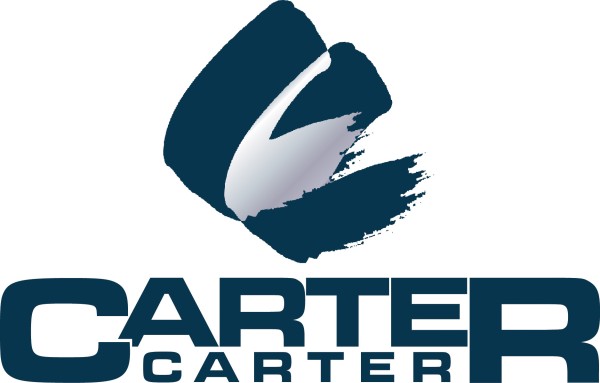It is the intent of the company, as its financial profiles allow, to provide benefits and to view salaries, benefits, and working conditions as an overall package. It is the aim of Carter & Carter to administer its salary program in such a manner as to attract, retain, and motivate highly skilled and qualified people.
INSURANCE PLANS:
This benefit is available to all full-time employees. The company contribution, if any, will be agreed upon in the terms of employment on an individual basis.
HOLIDAYS:
Each year we observe ten (10) holidays. They are as follows:
Holiday Date Observed
New Year’s Eve December 31
New Year’s Day January 1
Good Friday Friday before Easter Sunday
Memorial Day Last Monday in May
Independence Day July 4
Labor Day First Monday in September
Thanksgiving Day Fourth Thursday in November
Day after Thanksgiving Friday after Thanksgiving
Christmas Eve December 24
Christmas Day December 25
NOTE: If a paid holiday falls on a Saturday, it is observed on the preceding Friday; if it falls on a Sunday, it is observed on the following Monday. Holidays do not apply to Field offices only the Corporate office.
HOLIDAY GUIDELINES:
Employees are paid for these holidays according to their classifications:
Full-time employees Receive eight (8) hours pay
Part-time employees Receive four (4) hours pay
Introductory employees Receive pay according to their hiring classification
Temporary employees No pay
If a paid holiday falls within an employee’s paid vacation period, he/she shall receive an additional day with pay. If a holiday occurs during a period of sick leave, the employee will be paid holiday benefits for the holiday.
Employees who work on a paid holiday, with a supervisors’ advance written approval, will receive a compensatory day off. The compensatory holiday should be taken within 30 days of the calendar holiday.
Holidays may not be accumulated or carried over into the following year. Upon separation of employment, no payment will be made for any unused holidays.
VACATION:
Full-time and part-time employees are eligible for vacation benefits after completing 90 days of service unless otherwise agreed upon in employment terms. Vacation during the first year will be prorated to end December 31st of that year. Temporary and introductory employees are not eligible for vacation benefits. Part-time employees will accrue vacation hours in relation to the number of they are regularly scheduled to work per week. If the hire date is on or before the 15th of the month, employees will be given credit for the entire month; if hired after the 15th, vacation credit of the next month will apply. Vacation accruals do not carry over from year to year, nor will payment be made in lieu thereof. Employees accrue vacation time at the rate of 1 day per month.
Listed below is a chart that illustrates the amount of vacation employees will earn based on years of service. Vacation is calculated from January 1st through December 31st, as follows:

VACATION GUIDELINES:
Employees are to request vacation time from their supervisor, at least fifteen (15) days in advance and are approved based upon the workload expected during the affected time-frame and usually on a first come first served basis. In the event two employees request the same time, seniority will usually take precedence.
Vacation pay will be based on the normal rate of pay in effect at the time of the vacation. Pay may not be taken in lieu of vacation, nor may any employee switch, grant, donate or transfer any vacation time to another employee or third party.
All employees are encouraged to take vacation time as offered, but any vacation time not taken is considered to be waived or forfeited by the employee and it will not be carried over into the next vacation period.
VACATION AND TERMINATING EMPLOYEES
Employees who terminate employment because of any of the following reasons are eligible for payment of accrued unused vacation earned upon termination:
- Voluntary resignations/retirement when employee has given and is available to work a notice period of 10 working days. Employees who have used more vacation than they have accrued will be responsible for paying back any overpayment on their final paycheck. Employees may not take vacation as part of their two-week (10 working days) notice.
Employees who terminate employment because of any of the following reasons are not eligible for payment of accrued vacation earned upon termination:
- Voluntary resignation where a minimum notice of 10 working days was not given.
- Involuntary termination due to performance, behavior, and/or violation of company polices and procedures.
PERSONAL/SICK DAYS:
In addition to the days offered and accrued under the holiday and vacation policy sections, full-time employees accrue six (6) personal/sick days to use as they wish. Employees cannot use more sick/personal leave than has been accrued. Employees will not be paid for sick/personal leave accrued but not taken upon resignation or termination of their employment with the Company. Full-time employees accrue sick time at the rate of ½ day per month. Employees working less than 30 hours each week and temporary employees do not receive sick leave compensation. Sick/Personal leave balances will not roll over from year to year.
Personal/Sick is calculated from January 1st through December 31st, as follows:

SICK/PERSONAL LEAVE GUIDELINES
Sick leave accruals may be used for an employee’s illness or doctor visits. An employee may also use sick leave accruals to care for a sick spouse, child, or parent and individuals for whom the employee is the legal guardian or primary caregiver.
Sick leave must be reported on time records. Medical documentation of absences may be required for sick absences of 3 days or more. Medical and dental appointments should be scheduled during non-working hours. If this is not possible, reasonable time away from work for such appointments may be granted provided the work flow permits and supervisors are informed well in advance.
PROFESSIONAL DUES/MEETINGS:
It is the practice of Carter & Carter to assist with the professional growth and development of its employees when the best interests of the individual and the company are served.
The Company encourages active participation and attendance at professional meetings and related committees. Reimbursement and time off for professional workshops, seminars, college or vocational courses will be subject to the advance written approval of your supervisor and as workload permits.
EMPLOYEE ASSISTANCE PROGRAM
The Company provides an Employee Assistance Program (EAP) for employees and their dependents. This program offers informational resources and qualified counselors to help you cope with personal problems that you may be facing. Further details can be obtained through the Human Resources Department. Use of EAP services, however, does not excuse you from complying with company policies and procedures and achieving job requirements or expectations.



Post your comment on this topic.